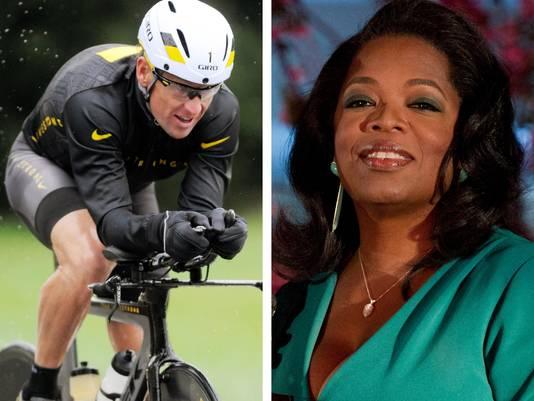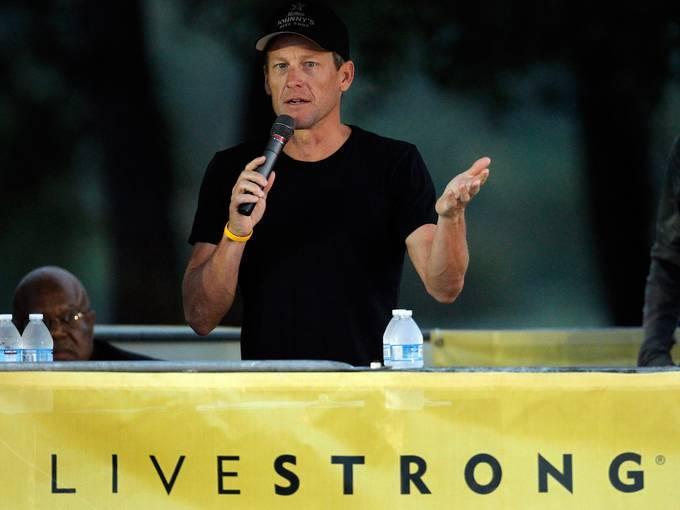By finally admitting to the use of performance-enhancing drugs, Lance Armstrong is following a calculated plan to rehabilitate his image and pave the way for a comeback in public life, two people with knowledge of the situation told USA TODAY Sports.
The people spoke on condition of anonymity because they were not authorized to discuss Armstrong’s strategy publicly.
MAKE UP: Why Armstrong needs to get along with Landis[1]
It won’t happen overnight, the people said. The famed cyclist instead hopes his planned confession to Oprah Winfrey Monday will start a multi-year healing process in which history will end up judging him more favorably because of his work fighting cancer and because he dominated cycling in an era when doping was the norm.
By confessing now after years of vehement denials, Armstrong also hopes to reduce distractions about the controversy for Livestrong, the charity he founded to support cancer survivors. It is a primary motivation for his decision, one of the people said.
The interview is scheduled to tape Monday at his home in Austin, Texas, and will air Thursday on the Oprah Winfrey Network. USA TODAY Sports first reported Friday that Armstrong planned to make a general admission in the interview while avoiding specific details.
Armstrong, 41, stepped down from Livestrong and was dropped by his sponsors after the U.S. Anti-Doping Agency released a huge file of detailed doping evidence against him in October. He was also stripped of his seven Tour de France titles.
His strategy is long-term. Armstrong does not expect to regain sponsors any time soon by confessing. He also doesn’t expect to resume his athletic career any time soon after being banned for life. He doesn’t even expect to sign a book deal right away, though there will be offers.
By contrast, if he decided not to confess, he was looking at a life of avoiding the subject and a pariah-like status in some quarters. Before the USADA evidence came out, he not only denied doping for years, but he attacked those who accused him of doping, including teammate Floyd Landis, with whom he is attempting to reconcile.
After the evidence came out, Armstrong stopped attacking and remained mostly silent on the subject. He had two realistic choices: keep quiet about it, or come clean. The latter option offered possible public redemption, even if it might take years.
“He appears to be gambling that the public will ultimately forgive him and he will be able to rehabilitate his image and earning potential,” said Brian Socolow, a New York-based business attorney not involved in the Armstrong case.
Though he wasn’t hurting for money, Armstrong’s income was reduced by his lifetime ban and his sponsors’ decision to drop him. Re-entering the public arena with a confession could lead to future income opportunities such as book deals, speaking engagements, sponsorships and even competition – all opportunities that would not be as likely or as successful without an admission.
A confession also could help him repair relationships with the cancer community. Armstrong, a cancer survivor, was forced to step down from the Livestrong board as the controversy swirled.
“Until we know what Lance has to say, we can’t talk about it in theory,” Livestrong spokeswoman Katherine McLane said Sunday.
Armstrong still faces potential legal trouble after his admission. If he fails to reconcile with Landis, Armstrong may have to deal with a federal whistleblower lawsuit that Landis filed against him under the False Claims Act – a suit the federal government has considered joining.
By admitting to doping, Armstrong also will give ammunition to two companies that have sued him for lying about it – The Sunday Times of London and SCA Promotions, a business in Dallas that paid his bonuses for winning the Tour de France. The Sunday Times took out an ad in Sunday’s Chicago Tribune telling Winfrey what to ask Armstrong in their interview. Armstrong probably would hope to settle those cases if not fight them.
Criminal prosecution also is possible, though the Armstrong camp considers that unlikely, the people said. The federal government dropped a criminal fraud case against him last year without explanation. Armstrong also testified under oath in the SCA case in 2005 that he never doped, possibly opening himself up to perjury charges, although that also is unlikely because it happened seven years ago, beyond the statute of limitations.

